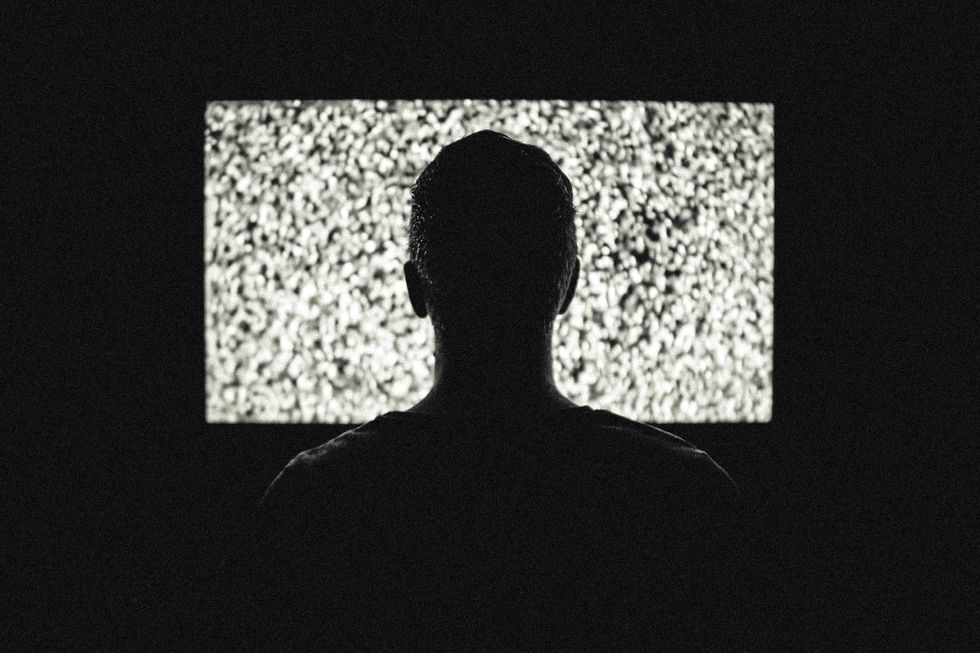The number of mediums through which we receive our information is infinite. First, there was the news and the newspaper, and then there was the radio, along with the newspaper, and then came the TV. But with the coming of "The Information Age," something changed, and suddenly the world was an information black hole, with news and media flying around from infinitely many sources on, sometimes, even one single website. The news became something that went from being localized to shared across the world and generalized. All of the information flying through infinitely many resources makes it infinitely easier to gain exposure to violence, natural disasters, terrorism, and fiercely nasty politics.
For example, CNN sends updates to my phone, plainly stating at 12:34 in the afternoon:
“Search and rescue efforts continue after powerful quake kills over 200”
My phone buzzes, I peer into the side pocket of my backpack in the midst of my Literary Studies class, I read the headline, and I nod. How sad, I think to myself, returning to my lecture on Dostoevsky. There it is — Millennial Desensitivity. There has been a separation from what many millennials register and understand to be sad, or violent, or gruesome, and what they actually feel to be. According to a survey, the age group that showed to have watched the most "Game of Thrones" episodes was 18 to 29-year-olds. I’ve only ever seen three episodes of the show: the first containing a very graphic sex scene, the second a horrible sex scene, and the third a woman walking butt-naked through a crowd of people, being publicly shamed and emotionally tortured.
There’s this idea that millennials desire fantastical horror, and drama, and emotional situations because real ones just don’t make them feel enough anymore. When Netflix debuted "13 Reasons Why," many people argued that it desensitized a generation to the idea of suicide through its graphic portrayal. I would disagree; the show didn’t desensitize anything, it simply sought to elicit a response from its main demographic, and in having to do so was left with no choice but to try and make the scene as graphic as possible. It is jarring, but in reference to our generation, not particularly unexpected.
I went to go see the film "Manchester by the Sea" when it was released earlier this year. In the theater were my then-18-year-old self, my freshly 20-year-old boyfriend, and a bunch of old people (I’m generalizing, so imagine old as being anywhere from 45-70). The turnout was, on the millennial end, piss poor. Judging by the number of people who I’ve spoken to who have or haven’t seen the film (and, if not, it wasn't because they were protesting Casey Affleck, which works as something of a ridiculous variable in my house-made statistic. The movie was good, get over it people) the majority were older and those that were younger weren’t particularly interested in it.
The movie itself was a meditation on grief and spent a great deal focused on working-class toxic masculinity and the struggles of living in an often overlooked situation. Nothing extraordinarily outlandish, nothing exploded and nobody was stabbed in front of the camera. The only really intense violence in the movie is that which the main character emotionally projects onto himself and his family. The movie was bold in that it was quiet when other movies were loud and audacious and nasty and gory, and I cried the entire way through.
In that respect, perhaps I am better than my fellow millennials (score!), or I might just feel a sentimental attachment to grieving and middle-class life that many other kids my age might either be completely and unconsciously removed from or just don’t feel anything towards and thus have no interest in viewing. I found the working-class struggle considerably harder to watch than any amount of violence on TV, and such should absolutely not be the case. If millennials were emotionally present, if their brains hadn’t been wired to easily receive horrible information, then most people would be sobbing through every episode of "Game of Thrones," screaming at main characters, and losing sleep over what they had just watched. But, I suppose the question is, where’s the fun in that?

















